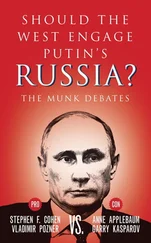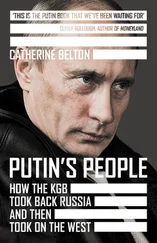Between 2000 and 2013 Zolotov was chief of security for the president and the prime minister of Russia, both of which offices Putin would occupy in that time. Little is known about Zolotov, as befits a secret service chief, yet there are fascinating and ominous glimpses of him in Comrade J, the memoirs of Colonel Sergei Tretyakov, who ran foreign intelligence for Russia in the United States after the end of the Cold War.
Newly elected president Vladimir Putin was scheduled to attend the UN Millennium Summit in New York in the first week of September 2000. The deputy head of Putin’s advance team Aleksandr Lunkin was an old friend of Colonel Tretyakov’s, and pumped Tretyakov for information about Zolotov. Lunkin recounted a conversation between Zolotov and an associate trying to decide which of Putin’s rivals and enemies should be assassinated to better secure the new president’s hold on power. Methods were discussed—how to make the killings look like a Mafia hit or the work of a Chechen terrorist. But one killing would necessitate another, the targets ranging from political figures to members of the press corps who might investigate the crimes. After much serious consideration, Zolotov concluded: “There are too many. It’s too many to kill—even for us.” [28] Pete Earley, Comrade J (New York: Berkeley Books, 2009), p. 299.
When, Zolotov himself, accompanied by a general, arrived in New York for a final security review, Colonel Tretyakov took the three of them to the popular Tatiana Café in Brighton Beach in Brooklyn. There Zolotov bragged about the superiority of the Russian secret service—its use of multiple armored limousines in a motorcade so an assassin wouldn’t know which one bore the president, the quality of the weapons used by his “Men in Black,” so called because of their black suits and black sunglasses. Those weapons included Gyurza pistols whose magazines contained eighteen bullets that could penetrate bulletproof vests from more than fifty yards away and also portable “Wasp” rocket launchers. Each man in the presidential guard was also an expert in martial arts, added Zolotov, and could kill with a single blow.
To demonstrate his point, Zolotov, without a word of warning, struck Tretyakov in the temple, knocking him unconscious to the floor. He came around a few seconds later, the general yelling: “You could have killed him!” [29] Ibid., p. 301.
That may have been the tipping point for Colonel Tretyakov, who defected a month later to the United States, for which he had been covertly working for three years and which paid him more than $2 million, the highest sum any defector had ever received.
Officially, among the National Guard’s several functions, the most important would seem to be “countering terrorism and extremism,” categories that can cover a multitude of sins, especially the latter. Yet the real purpose of Putin’s personal guard is to prevent Putin’s personal nightmare scenario from becoming a reality. That scenario has several interlocking elements: military pressure from Russia’s chief enemies, which, as in the Cold War, are again NATO and the United States; an information war by those same enemies designed to create unrest among the populace, leading to a Russian equivalent of Ukraine’s uprising; and maintenance of the sanctions and, in the Kremlin’s view, the deliberate keeping of oil prices low to bring Russia to its knees, since economic suffering will only exacerbate the discontent of workers, some of whom have received no salaries for months. Economic pain and social turmoil will set the stage for a palace coup by ambitious officials and oligarchs disgruntled because Putin has gone from making them money to costing them money. In that worst-case scenario Putin is dragged through the streets like Qaddafi.
The creation of the National Guard, a sort of national secret service, is the sign of a person feeling vulnerable, not one brimming with confidence. So it was probably no coincidence that the American guided missile destroyer USS Donald Cook was buzzed dangerously close by two Russian Su-24 bombers in the Baltic Sea off the coast of Kaliningrad on April 12, 2016, a week after the decree creating the National Guard. That this is an area where Russia feels particularly vulnerable was demonstrated two days later when a U.S. reconnaissance jet was buzzed by a Russian fighter. It came close to creating an incident. Secretary of State John Kerry called the behavior “reckless,” “provocative,” and “dangerous,” adding that “under the rules of engagement that could have been a shoot-down.” [30] “John Kerry: We Could Have Shot Down Russian Jets ‘Buzzing’ US Warship,” Guardian , April 14, 2016.
A Russian official responded: “We will continue to use force to prevent any attempts by foreigners to come close to our borders. If they blink, we will shoot them down without a second’s hesitation.” [31] Pavel Felgenhauer, “Russian Jets Fly Close to US Ship and Recon Aircraft over Baltic Sea,” Eurasia Daily Monitor , April 21, 2016.
The Baltic states—Estonia, Lithuania, and Latvia—as well as Poland were particularly alarmed by the Russian annexation of Crimea and incursion into eastern Ukraine. They all have long memories of Russian occupation and oppression under tsars and Communists. Some, like the city of Narva in Estonia, would seem ripe for the plucking. Narva is 94 percent Russian-speaking and 82 percent ethnic Russia. Fewer than half its residents are even citizens of Estonia. In Narva on February 24, 2015, during a parade that included U.S. troops and armored vehicles, the Estonian prime minister said: “Narva is a part of NATO no less than New York or Istanbul, and NATO defends every square meter of its territory.” [32] “US Armor Paraded 300 Meters from Russian Border,” RT News, March 23, 2015.
The irony is that Poland and the Baltic states really have nothing to worry about—Putin is happy to rattle the populace and humiliate NATO from time to time, but he has no vital interests there for which he would be willing to risk a confrontation with NATO. On the contrary, it is Putin himself who feels most vulnerable in the Baltic region.
Russia has a fleet at every point of the compass. The Northern Fleet, near Murmansk in the Arctic, and the Pacific Fleet in Vladivostok have always been secure. The southern Black Sea Fleet was secured with the annexation of Crimea; until then its use was ultimately dependent on the pleasure of the government in Kiev. It is the Baltic Fleet, which operates out of the Russian exclave province of Kaliningrad, that is the most unprotected. What Russia fears most—being surrounded by NATO—has already happened in Kaliningrad, a piece of Russia about the size of Connecticut, totally disconnected from the “mainland” and encircled by Poland and Lithuania.
Oddly enough, though surrounded by NATO in Kaliningrad, the Russians don’t seem the least cowed. In fact, they’ve used the area quite aggressively. Both President Putin and President Dmitri Medvedev have threatened to place missiles there, including some with nuclear warheads, in response to U.S. plans to install missile defense systems in Eastern Europe beginning with Romania, operational as of May 2016, to be followed by Poland in 2017. Russia launched live-fire war games in Kaliningrad right after the invasion of Crimea; the Poles and Lithuanians were so shaken that they invoked Article 4 of the NATO charter, which calls for consultation when “territorial integrity, political independence or security” is threatened.
But Kaliningrad is not so much Russia’s extended fist as its Achilles’ heel.
The Kremlin fears that the West can question the validity of Kaliningrad’s belonging to Russia. The original agreements about the postwar boundaries of Germany, Eastern Europe, and the Soviet Union were set out in the Potsdam Agreement of 1945. Those agreements were provisional and only became final forty-five years later, on September 12, 1990, with the signing of the Treaty on the Final Settlement with respect to Germany. In the 1994 Budapest Memorandum the Russians agreed to respect Ukraine’s sovereignty and territorial integrity when Kiev surrendered its nuclear weapons. If Crimea can be an exception to that agreement, why can’t Kaliningrad be an exception to the Final Settlement? This is a pressure the West could bring to bear.
Читать дальше
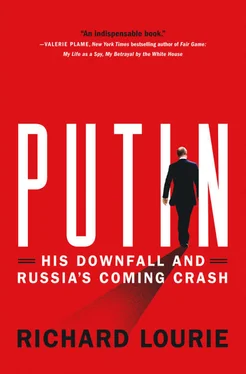

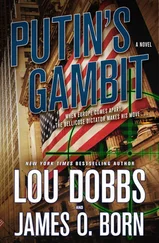
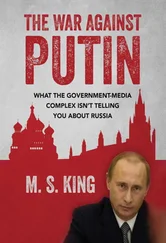

![Stephan Orth - Behind Putin's Curtain - Friendships and Misadventures Inside Russia [aka Couchsurfing in Russia]](/books/415210/stephan-orth-behind-putin-s-curtain-friendships-a-thumb.webp)

